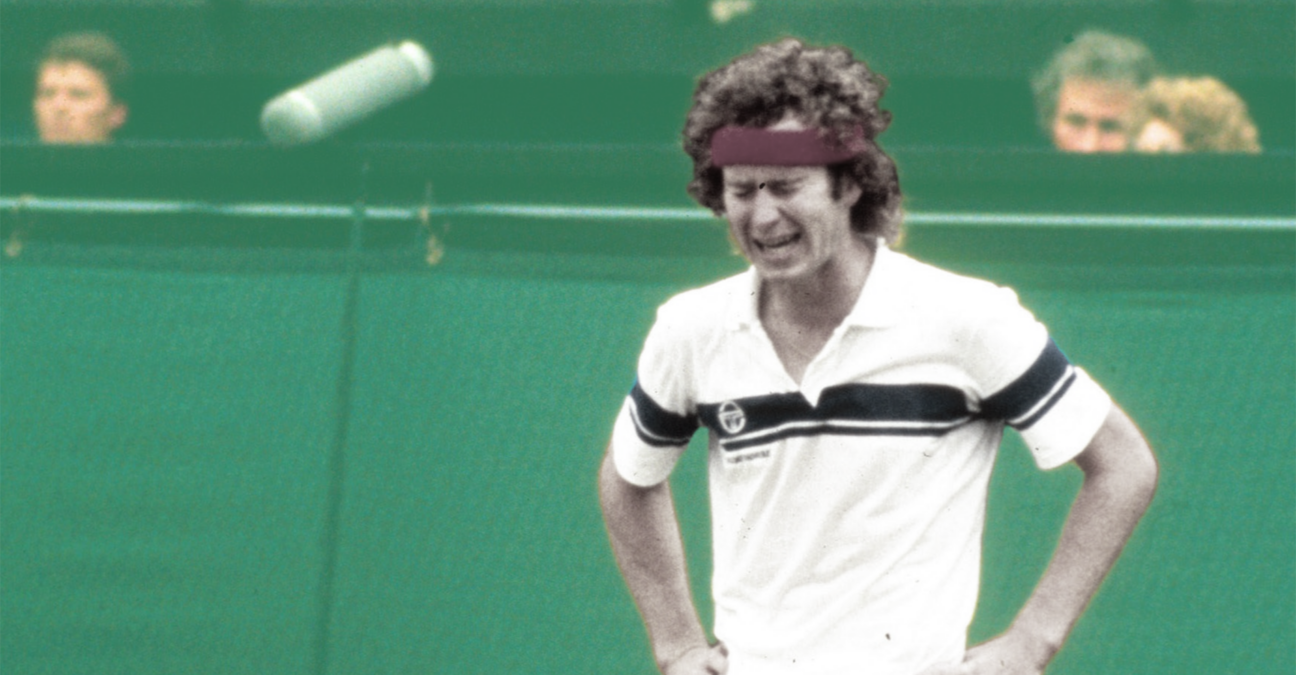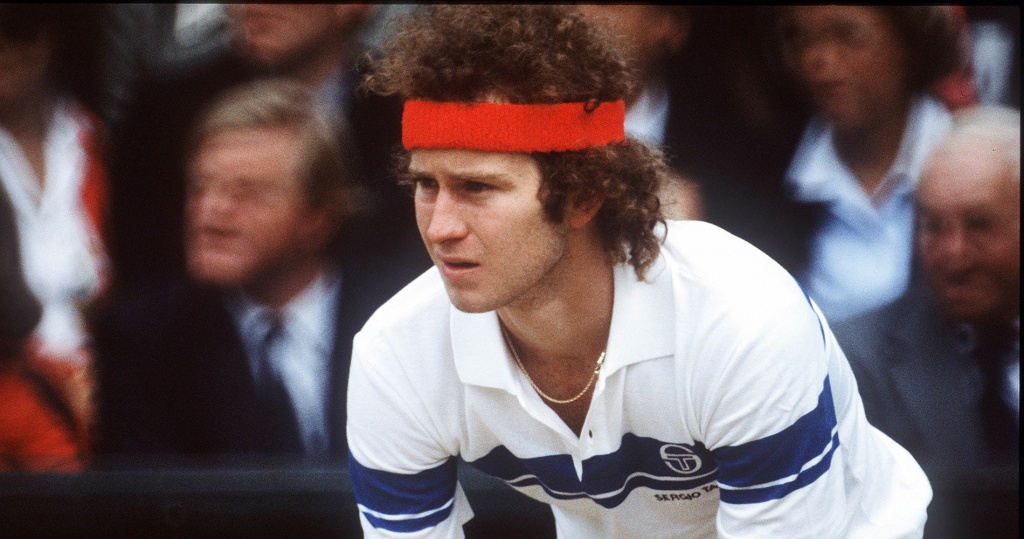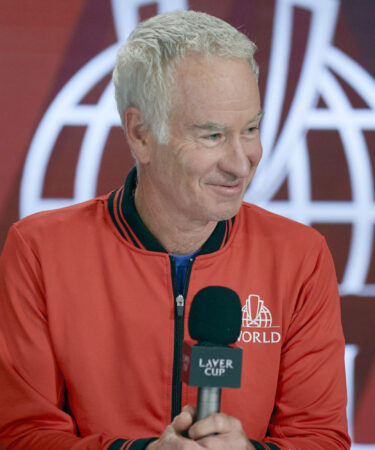June 22, 1981: The day McEnroe etched his name in tennis history with his “You cannot be serious” outburst at Wimbledon
Every day, Tennis Majors looks back at the biggest moments in tennis history. On June 22, 1981, John McEnroe and his world famous temper created an iconic moment for the sport

What exactly happened on that day?
On this day, June 22, 1981, John McEnroe displayed the most famous outburst in tennis history in the first round of Wimbledon, where he was playing against fellow American Tom Gullikson. Beyond frustrated with a call, the surly McEnroe, angst-ridden improviser that he was, came up with the unforgettable “You cannot be serious” line. It was a line that would forever live in infamy; it became so iconic that McEnroe himself would later use it as the title of his autobiography.
The players: John McEnroe and Tim Gullikson
- John McEnroe: Serve and volley wizard, hot-head
John McEnroe, born in 1959, had amazed the tennis world since his first foray on the pro tour in 1977, when at the age of 17 he showed up at Wimbledon as an amateur and reached the semi-finals. “Mac” was very talented, his game being based on precision and touch on top of an iconic and lethal serve. In 1979, McEnroe became the youngest ever US Open champion, defeating Vitas Gerulaitis (7-5, 6-3, 6-3). The American also made quite a sensation by edging Bjorn Borg (7-5, 4-6, 6-2, 7-6) to win the WTC Finals.

- Tom Gullikson: Experienced American, doubles star
Tom Gullikson, also from the United States, was born in 1951. He was ranked No 40 in the world when he entered the 1981 Wimbledon draw, which was his best singles ranking to date. Left-handed, he had a twin brother, Tim, who was also a professional tennis player but was right-handed. Together, the Gullikson brothers had already claimed eight titles in doubles and reached several Grand Slam fourth rounds.
The place: The hallowed Centre Court of Wimbledon
Wimbledon is the oldest and the most prestigious tennis tournament in the world. Held by the All England Lawn Tennis and Cricket Club since 1877, it moved into its current location in 1922, the same year when the fabled Centre Court was built. Considered by many as the most intimidating court in the world, with its famous Rudyard Kipling quote above the entrance (“If you can meet with triumph and disaster and treat those two impostors just the same”), Centre Court had seen the best players of all time competing for the title.
After the US Open switched to clay and then hard court in the 1970s, and after the Australian Open switched to hard court in 1988, Wimbledon remained the only Grand Slam tournament to be played on grass, a surface that is usually more suitable for serve-and-volley players. Not only did Wimbledon keep its surface, but it also maintained old-fashioned traditions such as the all-white dress code.
The facts: McEnroe blows up twice
In the first round at Wimbledon, John McEnroe, the 1980 runner-up, was facing fellow American Tom Gullikson. The American was one of the favourites of The Championships, and no one expected this first-round encounter to produce one of the most remarkable moments in Wimbledon history. But in the early games, when McEnroe served what he thought to be an ace and learned it had been called out by the chair umpire, he approached the net with a snarl forming on his face.
“Chalk came up all over the place. You can’t be serious, man. YOU CANNOT BE SERIOUS! That ball is on the line. Chalk flew up. It was clearly in. How can you possibly call that out? How many you can miss? Everybody knows it’s in – the whole stadium – and you call it out? Explain that to me, will you?”
This first outburst cost McEnroe a warning, but in the next game, on Gullikson’s serve, the young left-hander lost his temper again and called the umpire, Edward James, “the absolute pits of the world”. This time, he was fined a point penalty. This was too much for McEnroe, who now called the official an “incompetent fool” and called the referee.
After the incident was over, it did not affect McEnroe’s ability to outplay Tom Gullikson in three sets (7-6, 7-5, 6-3).
Gullikson was not impressed by McEnroe’s attitude: “It has no place. Everyone’s afraid of these guys. All it would take is one default to put them in line. If it was the 120th player in the world, they would have defaulted him.“
What next? McEnroe wins first Wimbledon title
That year, despite the controversy, McEnroe would claim the first of his three Wimbledon titles, defeating Borg in the final (4-6, 7-6, 7-6, 6-4). He would receive a $1,500 fine for his first-round transgressions, and the All England Club board would decide to break with tradition by not making him an honorary member of the club. In response, he would then boycott the Champion’s Dinner.
Over the years, “You cannot be serious” would become the most iconic outburst in tennis history. When McEnroe would retire from tennis and become a commentator for various TV channels, his relationship with the All England Club would thaw. Nowadays, visitors of the Wimbledon Museum are guided by McEnroe’s audiotaped voice.
In 2002, John McEnroe would publish an autobiography which would be named “You cannot be serious”.
Years later, Edward James, the umpire, would bitterly recall the incident and say he wished McEnroe would apologise for his behaviour : “It was the first time I’d umpired him and also the last. I’m still waiting but I don’t expect him to apologise and he doesn’t think that he has done anything wrong. In fact, we never spoke to each other again.“











